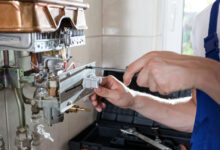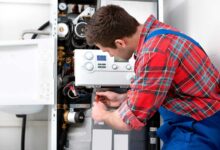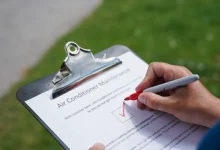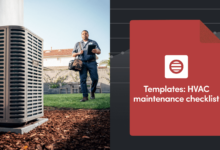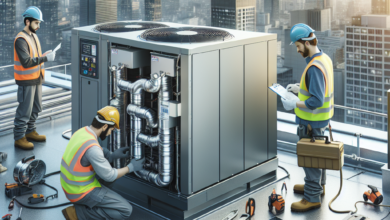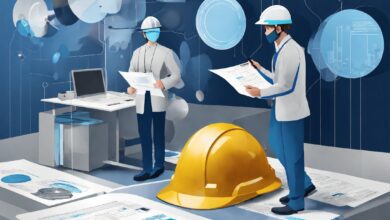How Much is HVAC Maintenance?
How Much is HVAC Maintenance? – Proper HVAC maintenance is essential for keeping your heating, ventilation, and air conditioning systems running smoothly and efficiently. However, many homeowners and business owners often wonder how much they should budget for these crucial services. In this comprehensive guide, we will explore the factors that influence the cost of HVAC maintenance and the benefits it provides. By the end, you will have a better understanding of the investment required to keep your HVAC system in top shape.
When it comes to HVAC maintenance costs, several factors come into play. The type and size of your HVAC system, its age, and the level of maintenance required all contribute to the overall expenses. Additionally, the geographic location and the availability of HVAC professionals in your area can influence the price. Understanding these factors and their impact on the cost will help you plan and budget accordingly.
Importance of Regular HVAC Maintenance
Regular HVAC maintenance is crucial for the optimal performance and longevity of your system. By investing in regular upkeep, you can prevent costly breakdowns, improve energy efficiency, and ensure clean and healthy indoor air quality. Let’s delve deeper into the key benefits of regular HVAC maintenance:
1. Enhanced Energy Efficiency
One of the primary benefits of regular HVAC maintenance is improved energy efficiency. During maintenance visits, a trained technician will inspect and clean components such as the air filters, coils, and ductwork. This ensures that your system can operate at its highest efficiency, reducing energy consumption and lowering your utility bills. Additionally, a well-maintained system doesn’t have to work as hard to reach the desired temperature, resulting in less wear and tear on the equipment.
2. Extended Equipment Lifespan
Another significant advantage of regular HVAC maintenance is that it helps extend the lifespan of your equipment. During maintenance visits, technicians will inspect various components, identify potential issues, and address them before they escalate into major problems. By catching and resolving these issues early on, you can prevent premature wear and tear, avoid costly repairs or replacements, and maximize the lifespan of your HVAC system.
3. Improved Indoor Air Quality
Poor indoor air quality can have adverse effects on your health and comfort. Regular HVAC maintenance plays a vital role in ensuring clean and healthy indoor air. Technicians will clean or replace air filters, remove accumulated debris, and inspect ventilation systems. This helps prevent the buildup of dust, allergens, and other pollutants, ensuring that the air circulating in your home or business is fresh and free from harmful particles.
4. Decreased Likelihood of Costly Breakdowns
Nobody wants to face a sudden and costly HVAC breakdown, especially during extreme weather conditions. Regular maintenance significantly reduces the likelihood of such breakdowns by identifying and addressing potential issues early on. Technicians will inspect electrical connections, lubricate moving parts, and test the system’s performance to catch any signs of trouble. By preventing major malfunctions, you can avoid the inconvenience, discomfort, and expense associated with emergency repairs.
5. Enhanced Safety
HVAC systems involve various electrical and mechanical components, making safety a top priority. Regular maintenance helps ensure that all safety measures are in place and functioning correctly. Technicians will inspect electrical connections, check for gas leaks (if applicable), and test the system’s overall performance to identify any potential hazards. By addressing safety concerns during maintenance visits, you can rest assured that your HVAC system operates safely and reduces the risk of accidents or fires.
Average Cost of HVAC Maintenance
Now that we understand the importance of regular HVAC maintenance, let’s explore the average cost associated with these services. It’s important to note that the cost can vary depending on several factors, including the type of system, its size, and the level of maintenance required. Here’s a breakdown of the typical expenses you can expect:
1. Professional Inspection and Cleaning
A typical HVAC maintenance visit includes a thorough inspection and cleaning of various components. This may involve checking electrical connections, testing system performance, cleaning coils, lubricating moving parts, and inspecting ductwork. The cost for a professional inspection and cleaning service can range from $100 to $200, depending on the complexity of your system and the number of units.
2. Air Filter Replacement
Regularly replacing air filters is an essential part of HVAC maintenance. The cost of air filters can vary based on their quality and size. On average, you can expect to spend around $10 to $30 per filter. The frequency of filter replacements will depend on factors such as the type of filter, the level of air pollution in your area, and the usage of your HVAC system.
3. Duct Cleaning
If your HVAC system has ductwork, periodic duct cleaning may be necessary. Over time, dust, debris, and other contaminants can accumulate in the ducts, negatively impacting indoor air quality and system efficiency. The cost of professional duct cleaning can range from $300 to $500, depending on the size of your system and the complexity of the ductwork.
4. Additional Repairs or Replacements
During maintenance visits, technicians may identify additional repairs or replacements that are necessary to keep your HVAC system in optimal condition. The cost of these repairs can vary depending on the specific issue and the required parts or materials. It’s important to address these repairs promptly to prevent further damage and more expensive repairs down the line.
Factors Influencing HVAC Maintenance Costs
Several factors can influence the cost of HVAC maintenance. Understanding these factors will help you determine why the costs may vary and how to budget accordingly. Here are the key factors that can impact HVAC maintenance expenses:
1. Type and Size of HVAC System
The type and size of your HVAC system can significantly impact the maintenance costs. Residential systems generally require less maintenance compared to larger commercial systems. The complexity of the system, the number of units, and the specific components involved can all influence the overall expenses.
2. Level of Maintenance Required
The level of maintenance required for your HVAC system can also affect the costs. If your system has been well-maintained in the past and is in good condition, routine maintenance visits may be relatively straightforward and less costly. However, if the system has been neglected or if there are underlying issues, additional time and effort may be required to bring it back to optimal functioning, resulting in higher maintenance costs.
3. Geographic Location
The geographic location can play a role in HVAC maintenance costs. Areas with a higher cost of living or higher demand for HVAC services may have slightly higher maintenance expenses. Additionally, certain regions may have specific climate conditions that necessitate more frequent or specialized maintenance tasks, which can also impact the overall costs.
4. Availability of HVAC Professionals
The availability of HVAC professionals in your area can affect the cost of maintenance. In areas with a limited number of qualified technicians or high demand for HVAC services, the cost of hiring professionals may be higher. Conversely, areas with a more competitive market may offer more affordable maintenance options.
Geographic Variations in HVAC Maintenance Costs
As mentioned earlier, the geographic location can influence the cost of HVAC maintenance. Let’s explore some common variations in maintenance costs across different regions:
1. Urban Areas and Metropolitan Regions
In urban areas and metropolitan regions, where the cost of living tends to be higher, HVAC maintenance costs may also be slightly elevated. The increased demand for services and the higher operating expenses for businesses in these areas can contribute to the higher costs. However, the availability of a larger pool of HVAC professionals may provide more competitive pricing options.
2. Rural and Remote Areas
Rural and remote areas may experience higher HVAC maintenance costs due to limited availability of professionals and the potential need for travel or transportation expenses. The lower population density and fewer service providers can result in higher prices to cover the additional time and resources required to reach these locations.
3. Climate-Specific Maintenance
Certain regions with specific climate conditions may require more specialized HVAC maintenance, which can impact the costs. For example, areas with high humidity or extreme temperatures may necessitate additional maintenance tasks to ensure optimal system performance. This can include more frequent coil cleaning, humidity control inspections, or winterization procedures.
DIY vs. Professional HVAC Maintenance
When it comes to HVAC maintenance, you may be tempted to take a do-it-yourself (DIY) approach to save money. While simple tasks like regularly replacing air filters can be done by homeowners, certain maintenance tasks are best left to professionals. Let’s compare the advantages and disadvantages of DIY maintenance versus hiring a professional:
1. DIY Maintenance
DIY HVAC maintenance can save you money in the short term, but it may not provide the same level of expertise and thoroughness as professional maintenance. Simple tasks like filter replacement can be easily handled by homeowners, requiring minimal tools and expertise. However, more complex maintenance tasks, such as inspecting electrical connections or cleaning coils, may require specialized knowledge and equipment.
2. Professional Maintenance
Professional HVAC maintenance offers several advantages. Trained technicians have the expertise and experience to identify potential issues, perform comprehensive inspections, and ensure that all components are functioning optimally. They havea deep understanding of the intricacies of HVAC systems and can provide tailored maintenance solutions. Professional maintenance also comes with the assurance that any necessary repairs or replacements will be handled correctly, reducing the risk of further damage or system malfunctions.
3. Cost and Safety Considerations
While DIY maintenance may seem cost-effective initially, it’s important to consider the long-term implications. Improperly performed maintenance or overlooked issues can lead to more significant problems down the line, resulting in expensive repairs or even the need for a complete system replacement. Additionally, HVAC systems involve electrical components and potentially hazardous substances, such as refrigerants. Without the proper knowledge and precautions, DIY maintenance can pose safety risks.
4. Quality and Warranty Considerations
Hiring a professional HVAC maintenance service often comes with the added benefit of warranties or guarantees on the work performed. This provides peace of mind knowing that if any issues arise after the maintenance visit, you can rely on the service provider to address them. Additionally, professional maintenance ensures that all components are thoroughly inspected and serviced, maximizing the efficiency and lifespan of your HVAC system.
Importance of Regular Maintenance for Energy Efficiency
Regular HVAC maintenance plays a vital role in optimizing energy efficiency. Let’s explore some key maintenance tasks that contribute to improved energy efficiency:
1. Cleaning and Replacing Air Filters
Dirty or clogged air filters restrict airflow, forcing your HVAC system to work harder to maintain the desired temperature. Regularly cleaning or replacing air filters ensures proper airflow, reducing energy consumption and strain on the system. Clean filters also help maintain optimal indoor air quality by trapping dust, allergens, and other particles.
2. Cleaning Evaporator and Condenser Coils
Over time, the evaporator and condenser coils of your HVAC system can accumulate dirt and debris, hindering heat transfer and reducing efficiency. Regular cleaning of these coils removes the buildup, allowing for efficient heat exchange and optimal system performance.
3. Lubricating Moving Parts
Friction from moving parts can cause increased energy consumption and premature wear and tear. Lubricating these components reduces friction, ensuring smooth operation and minimizing energy usage. It also helps prevent excessive strain on the system, extending its lifespan.
4. Checking and Adjusting Refrigerant Levels
Proper refrigerant levels are crucial for optimal cooling performance. Too little or too much refrigerant can lead to decreased efficiency and increased energy consumption. During maintenance visits, technicians will check refrigerant levels and make any necessary adjustments to ensure the system operates at peak efficiency.
5. Inspecting and Sealing Ductwork
Leaky ductwork can result in significant energy losses as conditioned air escapes into unconditioned spaces. Regular inspection and sealing of ductwork prevent air leakage, improving overall energy efficiency. Properly sealed ducts ensure that conditioned air reaches its intended destination, reducing the workload on your HVAC system.
Extending Equipment Lifespan through Maintenance
Regular maintenance can significantly extend the lifespan of your HVAC equipment. Let’s explore some maintenance tasks that help prolong the life of your system:
1. Cleaning and Inspecting Coils
Dirty coils can cause your HVAC system to work harder, leading to increased wear and tear. Regular cleaning and inspection of coils remove dirt and debris, preventing coil corrosion and optimizing system performance. This helps extend the lifespan of your equipment and avoids costly coil replacements.
2. Checking Electrical Connections
Loose or faulty electrical connections can cause system malfunctions or even damage electrical components. During maintenance visits, technicians will inspect and tighten electrical connections, ensuring they are secure and functioning properly. This reduces the risk of electrical issues that can shorten the lifespan of your HVAC system.
3. Lubricating and Maintaining Moving Parts
Proper lubrication of moving parts reduces friction and prevents excessive strain on the system. Well-maintained components, such as fan motors and belts, last longer and operate more efficiently. Regular maintenance visits include lubricating these parts and identifying any signs of wear or damage that may require repair or replacement.
4. Addressing Minor Issues Promptly
During maintenance visits, technicians can identify and address minor issues before they escalate into major problems. This proactive approach helps prevent extensive damage that can shorten the lifespan of your HVAC equipment. By promptly resolving minor issues, you can avoid costly repairs or premature replacements.
How Maintenance Improves Indoor Air Quality
Indoor air quality is a critical aspect of any HVAC system. Regular maintenance can significantly contribute to improving indoor air quality. Let’s explore some maintenance tasks that help enhance the air you breathe:
1. Regularly Replacing Air Filters
Air filters play a crucial role in trapping dust, pollen, pet dander, and other allergens, preventing them from circulating in your indoor air. Regularly replacing air filters ensures that they remain effective in capturing these particles, improving the quality of the air you breathe. Different filter types and MERV ratings are available to address specific air quality concerns.
2. Cleaning and Inspecting Ventilation Systems
During maintenance visits, technicians will clean and inspect ventilation systems to ensure proper airflow and prevent the buildup of dust, debris, or mold. This helps maintain the integrity of the ventilation system and ensures that clean air can circulate throughout your living or working space.
3. Removing Debris and Contaminants
Over time, debris and contaminants can accumulate in various parts of your HVAC system, including ductwork, coils, and condensate pans. Regular cleaning and removal of these substances prevent them from becoming a breeding ground for mold, bacteria, or other harmful microorganisms. This contributes to cleaner and healthier indoor air.
Cost Savings from Regular HVAC Maintenance
While HVAC maintenance does come with a cost, it also brings significant savings in the long run. Let’s explore some of the cost-saving benefits of regular maintenance:
1. Avoidance of Costly Repairs
Regular maintenance helps identify and address potential issues before they turn into major problems that require expensive repairs. By catching and resolving minor issues early on, you can prevent them from escalating and causing significant damage to your HVAC system. This saves you from costly repairs or the need for a complete system replacement.
2. Increased Energy Efficiency
A well-maintained HVAC system operates at optimal efficiency, reducing energy consumption and lowering your utility bills. By regularly cleaning coils, replacing air filters, and ensuring proper airflow, you can maximize energy efficiency and avoid wasting energy. The savings in energy costs can accumulate significantly over time.
3. Extended Equipment Lifespan
Proper maintenance helps extend the lifespan of your HVAC equipment. By addressing minor issues, lubricating moving parts, and cleaning components, you reduce the wear and tear on your system. This means that you won’t need to replace your HVAC equipment as frequently, saving you money in the long run.
4. Improved System Performance
Regular maintenance ensures that your HVAC system operates at its best, providing consistent and reliable performance. This means that your system can deliver the desired heating or cooling output efficiently, keeping your indoor environment comfortable year-round. Improved performance also reduces the risk of discomfort due to temperature fluctuations or uneven heating/cooling.
Finding Reliable HVAC Maintenance Services
Choosing the right HVAC maintenance service provider is crucial to ensure the quality and reliability of the work performed. Here are some tips to help you find a reputable professional:
1. Check Certifications and Licenses
Verify that the HVAC maintenance service provider holds the necessary certifications and licenses required by your local authorities. This ensures that they have the expertise and knowledge to perform maintenance tasks safely and effectively.
2. Read Customer Reviews and Testimonials
Look for reviews and testimonials from previous customers to gauge the reputation and reliability of the HVAC maintenance service provider. Positive feedback and satisfied customers are indicators of quality service and professionalism.
3. Seek Recommendations
Ask friends, family, or neighbors for recommendations on HVAC maintenance services they have used and were satisfied with. Personal referrals can provide valuable insights and help you find trustworthy professionals.
4. Obtain Multiple Quotes
Request quotes from multiple HVAC maintenance service providers to compare prices and services offered. Be sure to inquire about the specific tasks included in their maintenance packages and any additional charges for extra services.
5. Inquire About Warranties and Guarantees
Ask about warranties or guarantees offered by the HVAC maintenance service provider. A reputable provider will stand behind their work and be willing to address any issues that may arise after the maintenance visit.
In conclusion, HVAC maintenance is an investment that ensures the efficiency, longevity, and air quality of your heating and cooling systems. By understanding the factors that influence the cost and the benefits it provides, you can make informed decisions and budget accordingly. Regular maintenance not only saves you money in the long run but also provides peace of mind, knowing that your HVAC system is operating at its best.
